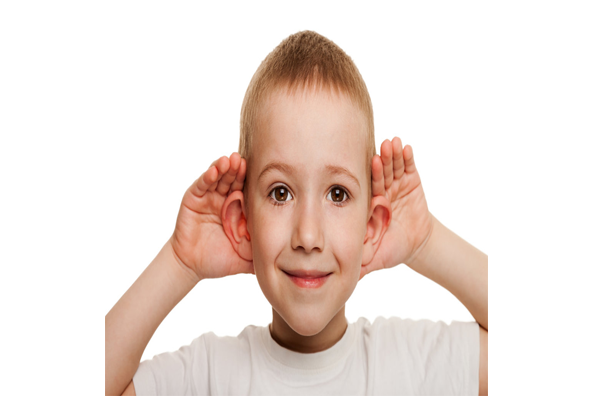
Listening comprehension is more than simply hearing what is being said. It involves:
- the ability to take in information
- the ability to respond to instructions
- the ability to share ideas, thoughts and opinions
You might think listening is an automatic response, and it`s true it can be hard to shut out the noise of the world around you, but effective listening is about processing the sounds and responding appropriately to the cues. Effective listening is an essential skill for learning and it`s something you can help your child develop.
The Advantages
If your child learns to listen well, she`ll be better at gathering, analyzing, storing and retrieving information. She`ll be more able to use that information to make the intuitive leaps needed to understand what`s being taught at school. Her language and communication skills will be stronger making her better at seeking clarification, expressing ideas and sharing her thought processes; this leads to increased engagement in the learning activity that will help her consolidate her new knowledge more effectively. Socially, she`ll form stronger relationships with others; by listening to others she`ll find it easier to find common ground, develop empathy, manage any conflict and provide support. She`ll feel more included which will, in turn, improve her self-confidence and self-esteem. She`ll gain more pleasure from social activities and feel able to get more involved.
Listening skills also help a child develop his reading skills, particularly when he hears a story as he sees the words on the page. Everyday activities give kids a chance to see and practice effective listening skills.
Step 1
Model active listening skills by looking at your child when she talks to you. Repeat back what your child is saying to ensure that you understand. Modeling proper listening gives your child a reference for her own listening.
Step 2
Ask your child to repeat what you said after you tell him something. For example, if you asked him to pick up his dirty laundry, put it in the hamper and wash his hands for dinner, have him repeat back the three things he needs to do. This gives him a chance to process what he was told and allows you to make sure he is listening to you.
Step 3
Have conversations with your child about topics that interest her. This gives her a chance to engage in a real conversation, practicing both speaking and listening. The conversation has a purpose for the child since it relates to a topic she enjoys.
Step 4
Practice following directions in the form of a game. Give your child a direction, and have him follow it. Make the directions entertaining so the activity is enjoyable. You might have him make a funny face, spin in a circle or walk like a duck. Move to more advanced verbal directions, such as building a tower with blocks using a specific pattern.
Step 5
Read stories to your child, asking her to predict what will happen next. The prediction requires her to listen to the details to make a logical guess. After reading the story, ask the child to retell the story in her own words. Another option is to have her act out the story with toys as you read it. This makes your child listen to the words and understand what the words mean.
Step 6
Borrow audio tapes of kids' books from the library. Let your child listen to the tapes as he follows along in the story.
Step 7
Tell a story together as a group. One person starts the story, adding a few sentences. Each person adds a few more sentences to the story. Participants have to listen to what everyone else says in order to add something to the story that makes sense.
Step 8
Cook with your child. Read the recipe to her, having her listen to and follow each step in order to complete the recipe correctly.
Other ways to help your child listen better are: -
-
Help your child to build their vocabulary. Children can get stuck on a word they don`t understand and end up missing the rest of what`s being said. Use books, games, flashcards, charts and online programs like Reading Eggs to build your child`s vocabulary, and don`t forget to read together regularly.
-
Remember that most young children have short attention spans. Don`t expect your child to process information if it is lengthy, out of context, or not particularly interesting to them. Focus on building learning comprehension skills in a fun and supportive way, and remember to always be patient.
